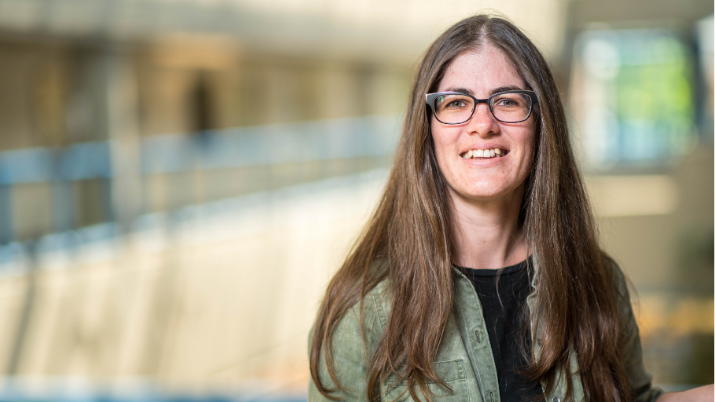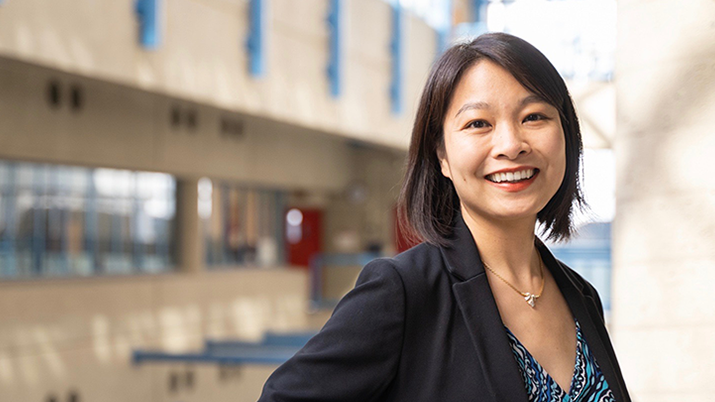

Dr. Veronica Dudarev has been recognized with a Young Investigator Grant from the Brain & Behavior Research Foundation (BBRF).
Dr. Veronica Dudarev is a research associate in Dr. Connor Kerns‘ ASAP lab who collaborates with Dr. Daniela Palombo and Dr. James Enns. Dr. Dudarev studies how high-level unconscious processes support our social cognition and our ability to understand each other and act together to make changes in the world.
Dr. Dudarev will use this support towards her research project Diverse Minds: Exploring Cognitive Subtypes and Social Anxiety in Autism.
Social anxiety disorder frequently co-occurs with autism spectrum disorder and may contribute to the significant variability in clinical presentation, support needs and intervention responsiveness of autistic individuals, particularly adults, who have been relatively understudied relative to autistic children. One approach to disentangling this heterogeneity (and thus identifying new directions for neurobiological and intervention research) may be to consider diverse profiles of cognitive processing, including not only attentional patterns, but also episodic memory, an individual’s internal record of their experience. Whereas much of the literature has focused on attention in both autism and social anxiety, limited research has focused on connecting attention and memory in autism, nor considered how social anxiety may relate to distinct patterns within and across these processes. Another challenge is that whereas research on cognitive processes in social anxiety has mainly focused on a sensitivity to emotional cues (e.g. negative v. neutral), studies in autism have often focused on social cues and have not controlled for the emotionality of stimuli, though emotional cues are known to have a significant influence on attention and memory that may interact with social effects.
The goal of the present study is to identify distinct “profiles” of cognitive processing within autistic individuals and their relationship to social anxiety to address the challenges of heterogeneity for future neurobiological inquiries and intervention research. To investigate distinguishable cognitive profiles, we will examine different cognitive functions (attention and memory) under various experimental conditions (social, nonsocial, negative, neutral) in a large sample (n=360) of young adults with and without autism (confirmed via a gold-standard observation tool and record review) as well as varying levels of social anxiety (assessed via a self-report questionnaire validated in both autistic and nonautistic adults). Participants will also complete an episodic memory paradigm (previously validated), with eye-tracking measurement to assess attention. The data will be analyzed using cluster analysis - a machine learning technique.
It is often suggested that autism is not a unitary condition (i.e. there are multiple ways of being autistic that differ functionally and neurally). The underpinnings and mechanisms of social anxiety disorder are also likely varied, perhaps particularly so when autism also co-occurs. This work offers an innovative approach to investigating multifaceted and integrative cognitive profiles in autism, while considering the contribution of social anxiety. Doing so may be a critical next step to elucidate the underlying (and likely varied) nature of challenges experienced by socially anxious and autistic individuals, their neurobiological underpinnings and their implications for targeted, and thereby enhanced intervention approaches to utilize each individual's unique strengths and to scaffold areas of relative weakness.
“I am thrilled to receive this award, which recognizes the rare and impactful collaboration between cognitive researchers (myself and Prof. Daniela Palombo) and clinical researchers (Prof. Connor Kerns) in the study of autism. This acknowledgment highlights the promise and uniqueness of our research program. I'm also deeply excited about the invaluable resource of time this award provides, allowing me to further develop and expand my work with Profs. Kerns and Palombo.”
BBRF Young Investigator Grants enable promising investigators to either extend research fellowship training or begin careers as independent research faculty. The goal of the program is to help researchers launch careers in neuroscience and psychiatry and gather pilot data to apply for larger federal and university grants.
Please join us in congratulating Veronica on this honour!


